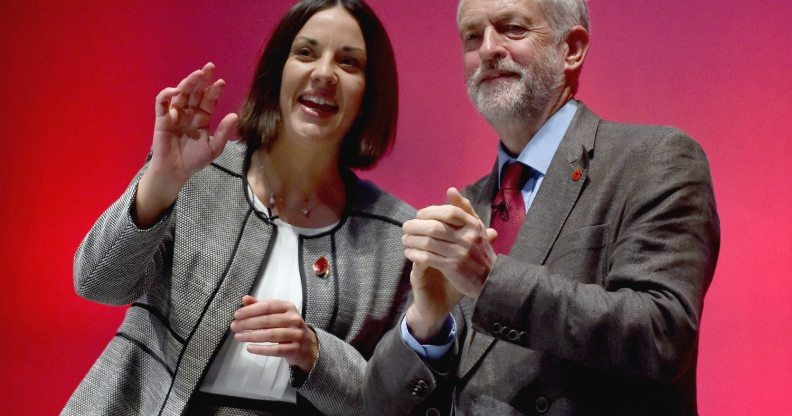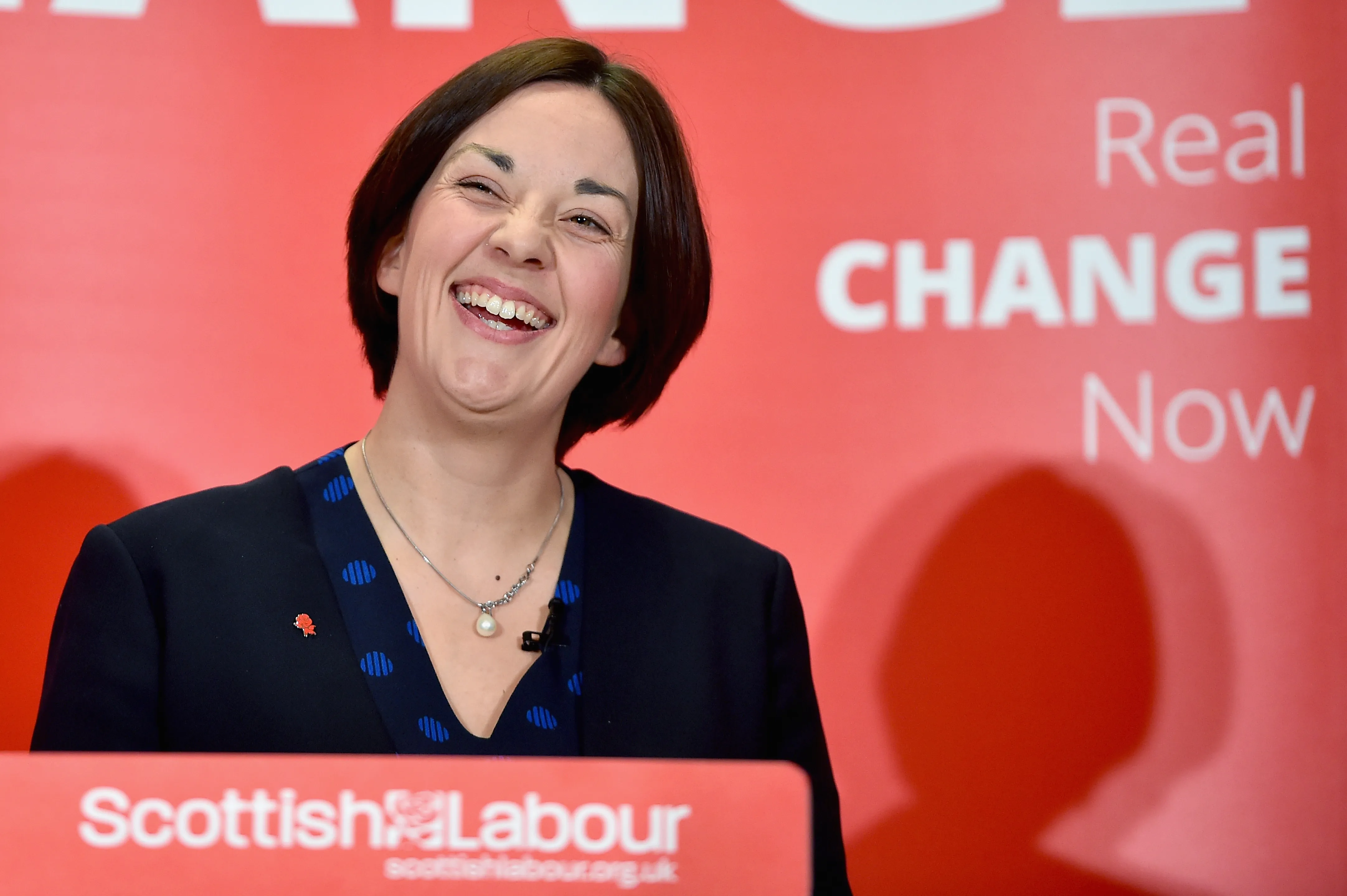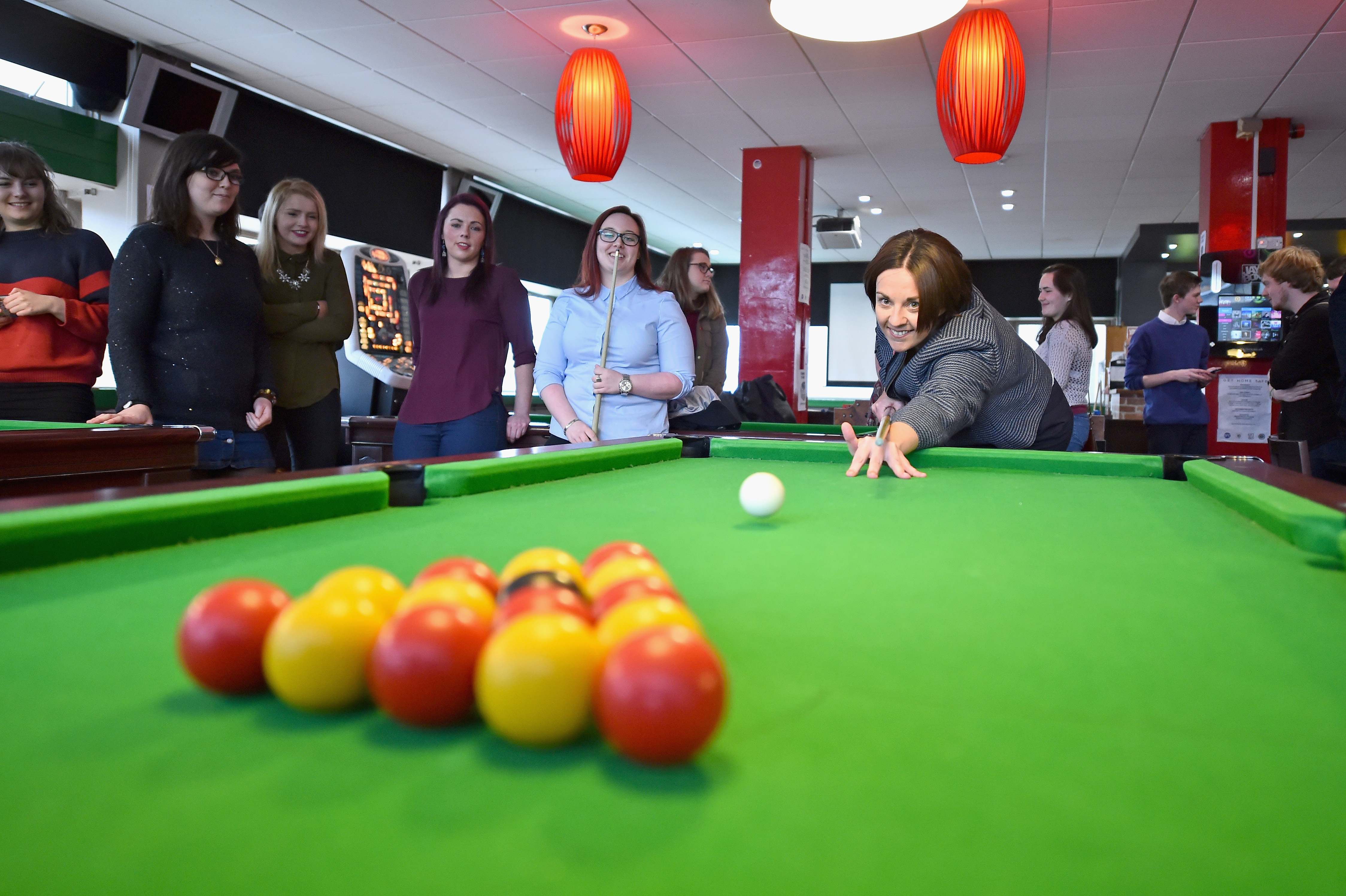Kezia Dugdale: Being an openly gay politician is not about making a point

PinkNews Exclusive
Kezia Dugdale, leader of the Scottish Labour Party, has told PinkNews she backs a decision on PrEP being taken within 100 days of the new parliament, would campaign the UK for gender neutral documents and that being an openly gay politician was not about making a political point.
Having studied at both Aberdeen and Edinburgh Universities, Kezia spent time working as a Welfare Officer at Edinburgh University Students Association and later a Public Affairs Officer with the National Union of Students.
The Scottish Labour leader later worked as office manager to MSP George Foulkes, before being elected to Holyrood. She is the fourth leader of the party since 2010.

I wanted to ask you about being a role model for LGBT young people. There has been a fairly positive response on you coming out. What I wanted to ask was if you believe in labels? To give you some context, you said you had a female partner, but you never said if you were bisexual or a lesbian and we wondered if that was because you just believe that people should be able to love who they want to love.
I just said it in the most natural way to me. I wasn’t trying to make a political point one way or another. I did it in quite a casual sense.
I believe fundamentally in equality and because of that I don’t think who my partner is matters. That’s why I choice to use language like ‘I have a female partner’, it was nothing to do with labels. It has everything to do with how I would describe my life and my partner and how I choice to talk about that.
I’m quite clearly gay, it’s just the use of language that we’re talking about here and I just did it in a very natural way, in the way I would say to a complete stranger meeting for the first time or a friend or someone at work.
It’s just how I live my life and I expect people to accept that.
The reason I asked that was because as a prominent woman in politics, I wanted to know how you see yourself being a role model to young LGBT people who, perhaps, don’t have the confidence to come out or are questioning their sexuality or gender?
The most important thing to me is that I use the voice and the power that I have to make a difference for young LGBT people and that’s why I look back at what I’ve done over the past five years with a great deal of pride. I mean it goes back even longer than five years. I signed the campaign for equal marriage back in 2005, when it was first being established. When I got elected to the Scottish Parliament, I always championed LGBT rights, I co-convened the cross party groups on sexual health and blood borne viruses, I co-convened the children and young people group and we did joint meetings on mental health to discuss attitudes to young LGBT people.
I’ve campaigned on sexual health services in Edinburgh and the Lothians. There has been all sorts of campaigns over the years and that to me is the best way I can be a role model. To constantly drive change in progress.
It’s much like the argument around gender equality. It’s not enough for Scotland to just have a female First Minister or to have a gay leader of the opposition. That is not enough progress for me. You have to use that power, that potential, that voice to drive a change and that’s how I would measure my own success.
Research has shown that Labour’s policy on income tax looks set to raise between £1.1 and £1.2 billion. This looks to be the highest out of all the parties, so is that money still going to go towards education our would it be used for something else?
What the Scottish Labour Party has is an anti-austerity pledge. By using the tax powers of the Scottish Parliament, by raising the base rate and by reintroducing a 50p top rate and not passing on a cut to high earners, we can generate enough money to stop any further cuts to public services in Scotland.
That’s the figure that you’ve got for the £1.1/1.2 billion a year. Our main focus is on education, but it would go beyond that. That is to protect public services in Scotland more generally. We’re saying stop the cuts, end austerity and invest in the future and better the skills of our people.
So how much of that money would you assign towards inclusive education?
We are the only party in Scotland that can say we want to protect education spending in real terms. So, if you look at the last budget of the Scottish Parliament it had a cut of £475m to local services, to councils.
50% of what councils do is education and that has had really material and harsh consequences on school budgets. You know what it takes to promote inclusive education in a classroom. It requires teachers to be confident in what they are teaching, it means having decent amounts of CPD [sic: development time] so that teachers can go away and address their skills, it’s about having the time to teach more generally.
So, by investing in education, we can protect those things that aren’t statutory requirements to let teachers focus on that inclusive style that we want to see in our classrooms.
Is there a figures you could put on that?
It’s not the job of the Scottish Government to tell local authorities how to spend their education budgets line by line, but without our commitment to protect education spending, you would be very hard pressed to be guaranteed the things that you’re looking for.
Can you talked to me a little about what your policy on drugs is going to be over the next parliament?
Drugs are reserved to the Westminster parliament, so you won’t see a huge amount of that in the manifesto. There will be reference to legal highs though. Trying to reduce, for example, the rate at which legal highs are used within the prison system in Scotland and also the importance of high quality youth work. If young people are experimenting with drugs they have access to the type of information they need to make informed choices.
I’ve done a lot of work in the past in Edinburgh with Crew, which is a really innovative, youth work service for young people which doesn’t condemn or condone drug use, but tries to make sure that young people have access to the type of information that young people need.
It’s services like that that are really, really vulnerable to the cuts. So, we have to make sure that we protect and invest in those public services, so that services like this still exist.
The reason I was asking about drugs, you have kind of hit on with the legal highs, but it’s in regards to chemsex. It seems to be something that is growing and there is a lot of news on it in London and elsewhere in the UK. It seems to be a lot more popular, particularly among gay men. From a health aspect, how can you tackle situations like chemsex, which can be dangerous, without making it look like an attack on LGBT people?
That’s an excellent question and it has to be done in a very considered way. I see very little politics in this, which is why for half of that last parliament I co-convened the cross party group on sexual health and blood borne viruses with Patrick Harvie. Unfortunately, the parliament changed the rules over the number of MSPs you had to have involved in the group for it to continue working – it increased that and we couldn’t keep it going.
I would say the increased prevalence of chemsex is the type of issue that you would want to be discussed at a cross party group where we can bring in experts, LGBT people to talk about how to promote the best ways to address this issue in a sensible way to make sure people have access to the advice that they need. It’s not served well by party politics or debates like that. You need to get people together who know about the details, know about the evidence and can try and promote positive behaviour.
Talking of the cross party group, when I spoke to Nicola Sturgeon recently she committed to the Scottish Parliament making its own decision on PrEP. So if you were First Minister, Leader of the Opposition or even when your just back in parliament – would you support the decision for Scotland to make its own decision on PrEP?
Absolutely. I think there is compelling evidence to providing PrEP and we’re very sympathetic to that. It’s really encouraging to hear Nicola Sturgeon say that we should make our decision in Scotland in that regard.
I think whoever wins the election, its something that should be looked at as a matter of urgency.
You say it would be a matter of urgency, how quickly do you see Labour pushing for it? Would it be one of the first things that’s done?
I said before that the cross party group be set up again. I think that is really important. All the organisations, groups and individuals that have been involved in that in the past would redouble their efforts to put this really high up the political agenda, so I’m absolutely committed to revisiting this as soon as parliament returns.
So could you see it happening within the first 100 days of the new parliament?
I would very much hope that it would, yes.
On the subject of health, mental health is something that all the parties have been discussing, especially in regards to LGBT people, who generally suffer higher levels of mental health issues than the population in general. How would you make mental health services more accessible for the most vulnerable LGBT people?
We need to start with the harsh facts here. In the last two years, almost 20,000 adults in Scotland weren’t able to access the therapies that they needed within the 18 week target. So, there is a national scandal here when it comes to the treatment of mental health within the NHS, which we need to address really quite urgently.
The Labour manifesto has two clear commitments on this. One is about increasing the number of educational psychologists. Even within the mental health stats, the figures for young people are absolutely shocking and many of those affected will be from the LGBT community. Having more educational psychologists would help prevent this type of clinical intervention in these cases. The English NHS cut waiting times for mental health services almost in half and they did it by also increasing the number of people who had specialisms in talking therapies.
We would seek to replicate that style to reduce the waiting times in Scotland. Obviously, within that we would want to have people who had specialisms, particular in supporting people from the LGBT community.
There are additional challenges with the trans community that have to be addressed specifically, but that’s about supporting the work of the Sandyford clinic and the work that goes on there.
You have hit on something I wanted to follow up with, which is that a lot of trans people need specialised mental health support. The Sandyford Clinic is for all of Scotland, which is fine if you live in the Central belt, but what about if you live in Skye or up in Orkney. Would you look to open another centre, like Sandyford, somewhere else in Scotland that would perhaps be more accessible?
I think the case for that is pretty compelling, but I can’t make a commitment to the extent today. I think that is very much for local health boards to direct, based on demand. What we can do though is put the pressure on why this is so important and why those individuals in rural communities have to overcome even more barriers to access what is their right.
I absolutely support moves in that direction, but I can’t make that 100% commitment to you today, to fund a particular building or service. I think that would be a little bit cheap to do that.
At the moment, a lot of people who are trans are required to go to a GP and get ‘diagnosed’, which a lot of people find difficult – especially if they have a difficult GP. Should we remove the GP requirement for someone, who, for instance is a transgender man, so that the transition process is easier?
Yes, I have said that at the Stonewall hustings. We have studied very closely with the Scottish Transgender Alliance’s Equal Recognition Campaign and we’ve made those commitments to remove the psychiatric diagnose requirement, both in the manifesto and at the Stonewall hustings, so there is complete support in that regard.
Hate crime is a big issue. Now, we can accept that Scotland is a good place to be LGBT, that gets mentioned a lot. But, there is the Equality Network figures that show the majority of LGBT people have reported homophobic or transphobic abuse. How would you look to tackle the issues of hate crime in the next parliament?
I’m not sure we should be so complacent as to say that Scotland is automatically a great place to be gay because I think that LGBT people’s experience varies vastly across the country. I wouldn’t ever want to be complacent about that because I think that the minute that we do, we’ll stop making the progress that we still need to make.
The journey that we’ve travelled on hate crime in recent years is really fantastic and I would pay tribute to the work that Patrick Harvie did on that. I was working for an MSP George Foulkes back in 2008 and George was one of the Labour MSPs that cosigned Patrick’s bill to progress it.
I still think there are issues around people’s willingness to report hate crime, so while we have made a lot of progress around ensuring reports of hate crime are followed up with charges and prosecutions, I still get the sense people will be reluctant to report. That’s about the degree to which they think the police are going to take these issues seriously.
That’s more to do with the resources that the police have now. I look at my experience of dealing with the police in Edinburgh and right now we’ve lost hundreds of police support staff, the pressures on the police to do their job are greater than they have ever been before. I regularly hear cases of people having to wait two or three days to see a police officer after their house has been burgled. There is that sense that the police would give this a particularly high priority or people might not be taken seriously. We have to be really careful here and make sure that we redouble our efforts to make sure people are comfortable and secure in the knowledge that if they report a hate crime – it would be taken seriously and acted upon.

In regards to that then, if the resources are lacking with the police then training on LGBT issues is something that is going to be difficult if they don’t have the resources to do it. How could you see the police being able to be trained better on dealing with LGBT issues?
I think that kind of equality training should be compulsory and nonnegotiable. It’s not something that I could ever even contemplate cutting. It’s fundamental to have policing by consent and that everyone has faith and trust in the police service. That’s something I would always stand up for.
Something that was discussed at the Stonewall hustings was the idea of a third gender or gender neutral documents. Is that something that you favour within the Scottish Parliament and Government?
Did we not debate that is something that is reserved. Certainly, in regards to passports, that is something that would be challenging to do in the Scottish Parliament. The principle of it is sound, but I’m not sure there is much we can do with the powers of the Scottish Parliament in that regard.
I was more thinking of the areas that the Scottish Government does have control over, such as local councils or health boards. I was going to ask about passports separately, but on the areas that the Scottish Parliament does have control – would you be in favour of those documents being gender neutral?
From memory, the First Minister said the Government had plans to review or revisit this and if I was in her shoes I would do exactly the same thing.
I asked Nicola Sturgeon this and I wondered what you thought, would you look to campaign the UK Government for things such as gender neutral passports and other reserved documents?
I would be happy to support that campaign.

PinkNews’ Scottish election coverage is sponsored the Royal Bank of Scotland
Elections to the Scottish Parliament take place on May 5.

